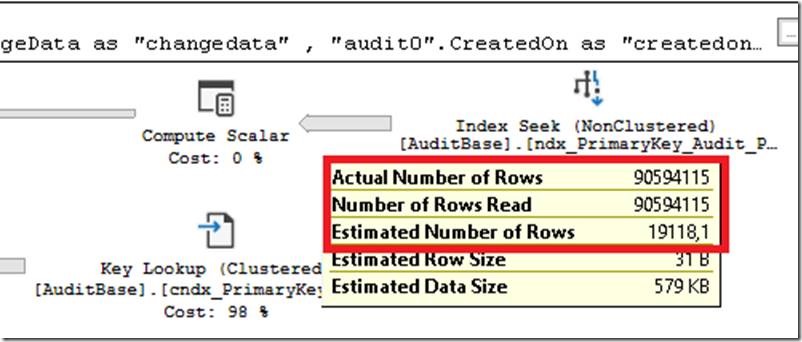
von Uwe Ricken | Feb 26, 2024 | DB Engine, Informationen, SQL Blog, Statistiken, Tipps und Tricks
Ich benutze regelmäßig das berufliche Netzwerk LinkedIn, um mich mit Kollegen auszutauschen oder um innovative neue Ideen, Tipps und Tricks von geschätzten Kollegen in meinem Netzwerk zu erhalten. Viele Beiträge in meinem persönlichen Feed verweisen dann auf...
von Uwe Ricken | Apr 3, 2020 | 300, DB Engine, Indexierung, Optimierung, SQL Blog, Statistiken
Kennen Sie das Problem, dass ein Index für eine Tabelle implementiert wird und die Abfrage dennoch nicht schneller ist? Ursächlich kann in solchen Fällen die Verwendung von falschen Datentypen für die Prädikate, die in einer WHERE-Klausel oder einem JOIN verwendet...

von Uwe Ricken | Mrz 25, 2020 | DB Engine, Optimierung, SQL Blog, Statistiken, Tipps und Tricks
Im letzten Monat bin ich bei einem Kunden im Einsatz gewesen, der Microsoft Dynamics 365 im Einsatz hat. Trotz optimaler Hardware und sehr gut konfiguriertem Microsoft SQL Server konnten Daten aus dem Änderungsprotokoll für Kundeninformationen nicht eingesehen werden...
von Uwe Ricken | Feb 27, 2017 | 300, DB Engine, Optimierung, Statistiken, Tipps und Tricks
Immer wieder kommt es vor, dass trotz guter Indexierung ein Index nicht optimal genutzt werden kann, da die Suchmuster eine optimale Verwendung eines Index verhindern. Eher durch Zufall bin ich auf einen interessanten Artikel von Fabricio Lima gestoßen, der eine – wie...
von Uwe Ricken | Dez 25, 2016 | 300, DB Engine, SQL Blog, Statistiken, Tipps und Tricks
Häufig fällt auf, dass Datenbankentwickler ihre Abfragen mit Hilfe von Variablen testen. Die Programmiersprachen, wie z. B. C, C++, Basic und Java, besitzen ihre eigenen Variablen zur Aufnahme von Daten und diesen Lösungsansatz möchte man gerne in der Datenbank...









